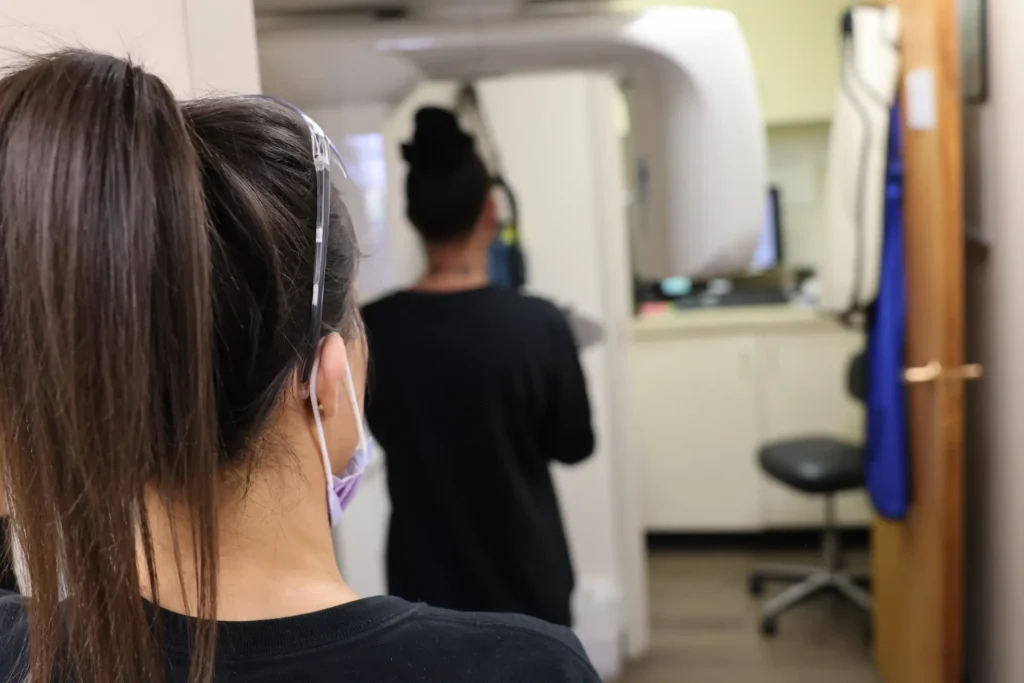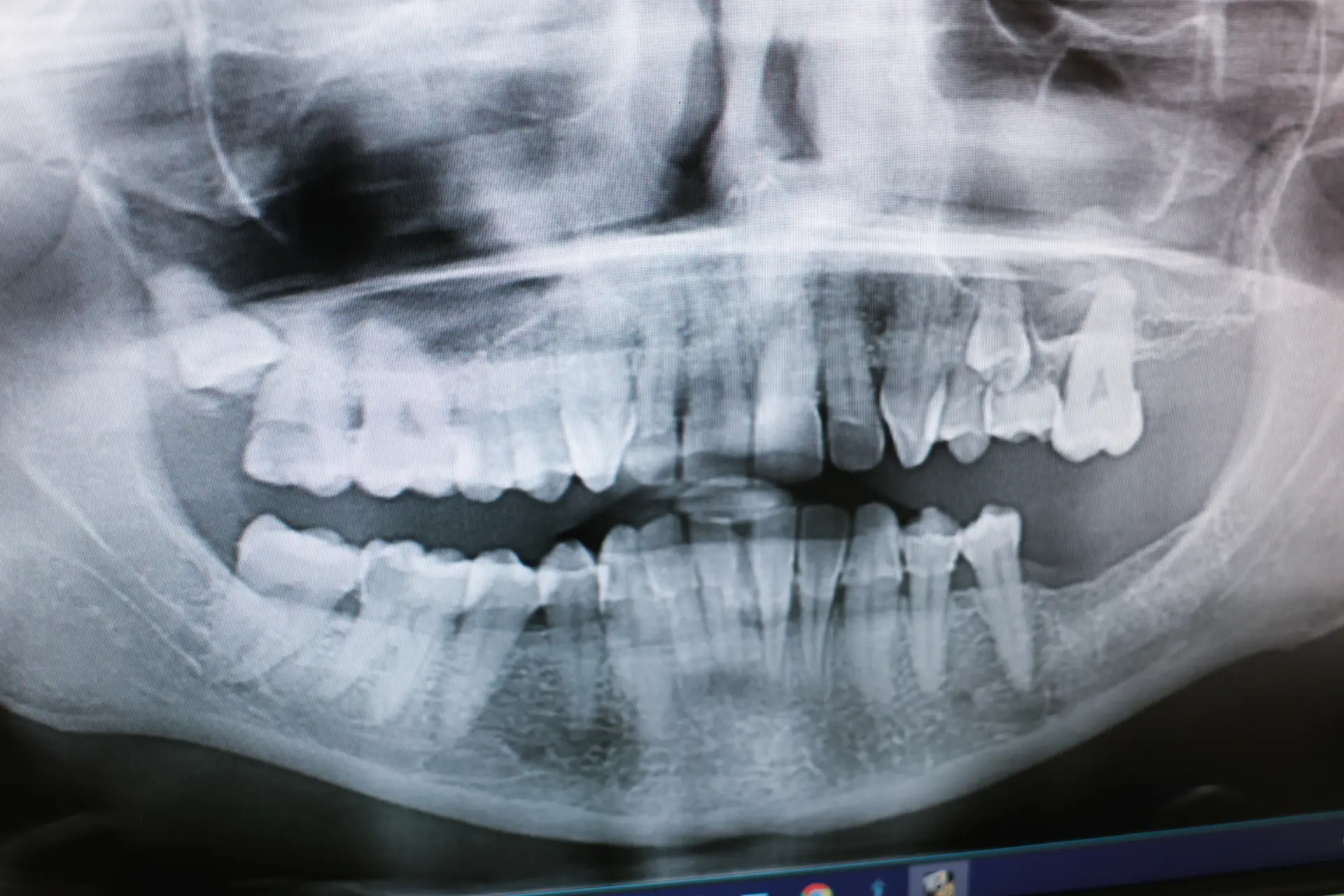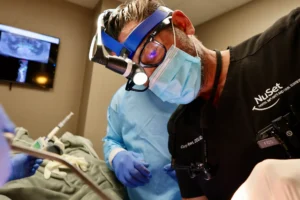Dental implants have become a popular solution for replacing missing teeth, and since they offer a durable solution with a natural look, it’s easy to see why. The American Academy of Implant Dentistry reports that more than 3 million Americans currently benefit from dental implants, with this number increasing by over 400,000 annually.
While dental implants have a high success rate, statistics show that about 5-10% may experience complications, including loosening over time. Your dental implant can become loose due to various factors, including trauma to the mouth, gum disease, improper implant placement, etc.
Prompt dental intervention is vital at the first sign of a loosening implant. Timely care not only secures the implant but also safeguards your overall dental well-being.
Let’s discuss the causes of loose dental implants and the treatment options in detail.
What Causes Loose Dental Implants?
Even though dental implants are designed to be a durable and long-lasting solution for missing teeth, there are instances when they may become loose. Knowing the reasons behind this can help in addressing the issue effectively. Here are the main causes of loose dental implants:
Poor osseointegration
Osseointegration is the process by which the dental implant bonds with the jawbone. If this process doesn’t happen as it should, the implant may not secure properly to the bone, leading to instability. This can happen due to harmful habits like smoking or improper oral care after dental implants.
Gum disease
Gum disease can weaken the support your gums and bones provide to the implant, causing it to become loose. Maintaining good oral hygiene is vital for preventing this.
Excessive pressure on the implant
Habits like teeth grinding or clenching can put extra pressure on implants, which might lead to loosening over time. Addressing these habits is important to ensure the longevity of your dental implants.
Implant misalignment
If an implant is not aligned correctly with the adjacent teeth, it can lead to improper distribution of chewing forces, causing the implant to loosen.
Trauma or injury
Accidents or injuries to the face can impact the stability of dental implants. Even a minor impact can disturb an implant if it’s still in the healing phase.
Understanding these causes is the first step in addressing the issue of a loose dental implant. If you suspect your implant is loose, please seek professional dental care to prevent further complications.
Signs and Symptoms of a Loose Dental Implant
Recognizing the signs and symptoms of a loose dental implant early can help address the issue promptly and prevent further dental problems. Here are some indicators to watch out for:
- If the implant feels like it moves when you touch it or chew on it, it’s a clear sign that it’s loose.
- While discomfort is normal after implant surgery, persistent or new pain around the implant site could indicate a problem.
- Any excessive swelling or redness around the implant area might suggest inflammation or infection, which could affect the implant’s stability.
- If chewing becomes difficult or you experience pain, the implant may not be as secure as it should be.
- Receding gums around the implant can expose parts of the implant or its metal abutment, indicating potential loosening.
- Clicking or grinding noises when you chew or move your mouth could indicate that the implant is not properly in place.
If you notice any of these symptoms, it’s important to contact your dentist as soon as possible. Early intervention can often resolve the issue and save the implant.
What to Do If You Suspect Your Dental Implant is Loose
Discovering that your dental implant feels loose can be worrying, but taking the right steps can help ensure the best possible outcome. Here’s what you should do:
Contact your dentist immediately
The first and most important step is to call your dentist or oral surgeon as soon as you suspect your implant is loose. They can assess the situation and recommend the best course of action.
Avoid putting pressure on the implant
Try not to chew directly on the implant. This can prevent further damage and help maintain the implant’s integrity until you can see your dentist.
Maintain good oral hygiene
Continue to brush your teeth carefully. Good oral hygiene can prevent infections that could complicate the situation.
Don’t try to fix it yourself
It might be tempting to try and tighten the implant or make adjustments on your own, but this can cause more harm than good. Only a professional should adjust or repair dental implants.
Taking these steps can help manage a loose dental implant effectively until you can get professional care. Remember, early intervention is key to preserving your dental health.
Treatment Options for Loose Dental Implants
When you visit your dentist or oral surgeon with a loose dental implant, they will carefully evaluate your situation to determine the best treatment approach.
Tightening the implant
If the implant itself is not damaged and the issue is with a loose abutment (the connector piece between the implant and the crown), your dentist may tighten it. This is a relatively straightforward procedure.
Addressing gum disease
If gum disease is the cause of the implant’s instability, treatment will focus on resolving the infection and inflammation. This might involve deep cleaning, medication, or more specialized gum treatments.
Bone grafting
In cases of significant bone loss around the implant, a bone graft may be necessary to provide the implant with the necessary support.
Replacement of the implant
In situations where the implant is damaged or if there has been extensive bone loss, removing and replacing the implant might be the best option. This will usually involve a new period of healing and osseointegration.
Adjusting bite force distribution
If misalignment or excessive bite force is a problem, your dentist might recommend adjusting other teeth or the implant crown to distribute the force more evenly during chewing.
At Nuset Dental Implant and Oral Surgery, our goal is to evaluate your dental implants thoroughly and provide the right treatment to ensure long-term stability and function. We understand the importance of a secure and comfortable implant and are here to help you achieve the best possible outcome.
How to Prevent Loose Dental Implants
Maintaining your dental implants’ stability and longevity is crucial for oral health. Here are some effective ways to prevent your dental implants from becoming loose:
- Brush twice a day.
- Floss daily using a water pick, and use an antimicrobial mouthwash to keep your mouth clean and reduce the risk of infections that could weaken your implants.
- Visit your dentist regularly, say two or three times yearly.
- Avoid hard foods like candies, ice, or sticky foods, which can put excessive pressure on implants, risking damage.
- Quit smoking, as this can interfere with the healing process and affect the osseointegration of your implant.
- If you grind your teeth at night, consider getting a mouthguard to protect your implants and natural teeth from excessive pressure.
- After your implant surgery, carefully follow all the care instructions provided by your dentist to ensure proper healing and integration.
Taking these steps will help ensure your dental implants remain secure and functional for years to come.

Secure Your Dental Health With Us at Nuset
While dental implants are a highly effective solution for replacing missing teeth, they require careful attention and care to maintain their stability and longevity.
At Nuset Dental Implants and Oral Surgery, we’re committed to providing top-quality dental care to ensure your implants remain secure and your smile stays beautiful. With the right care and attention, dental implants can offer a lasting solution for missing teeth, allowing you to speak, eat, and smile with confidence.
If you’re considering dental implants or are concerned about the stability of your existing implants, don’t hesitate to contact us. Our expert team is ready to support your dental health and help you achieve a smile you’re proud to show off. Visit us today to schedule your appointment. Let us help you keep your smile bright and your dental implants secure.
Frequently Asked Questions
How can I speed up the healing of my dental implants?
To promote faster healing:
- Practice good oral hygiene by gently brushing your teeth, even on the night of the surgery, and use any mouthwash recommended by your dentist.
- Avoid smoking and alcohol, as they can negatively affect the healing process.
- Eat soft, nutritious foods and stay hydrated to support healing.
- Avoid disturbing the surgery site with your tongue or fingers.
- Attend all follow-up appointments with your dental professional to ensure proper healing and implant integration.
How long does it take to heal from dental implants?
The healing process varies from person to person, but typically takes about 6 to 12 weeks for the implants to fuse with the bone in a process known as osseointegration. Complete healing and integration into the jawbone can take several months, depending on the individual’s health and the specifics of their dental procedure.
How do I know if my implants are healing correctly?
Signs of proper healing include:
- Minimal swelling and discomfort that decreases over time.
- No excessive bleeding after the first few days.
- Gradual improvement and comfort in the area of the implant.
If you experience persistent pain, swelling, or any signs of infection (such as pus or fever), you should contact your dentist immediately. These could be signs of complications.
What foods should you avoid after dental implant surgery?
After dental implant surgery, it’s important to avoid hard and crunchy foods (like nuts and seeds) that can disturb the implant site. Also, avoid sticky and chewy foods (such as caramel and gum) that can pull on the implant. Hot and spicy foods can also irritate the surgery site.





